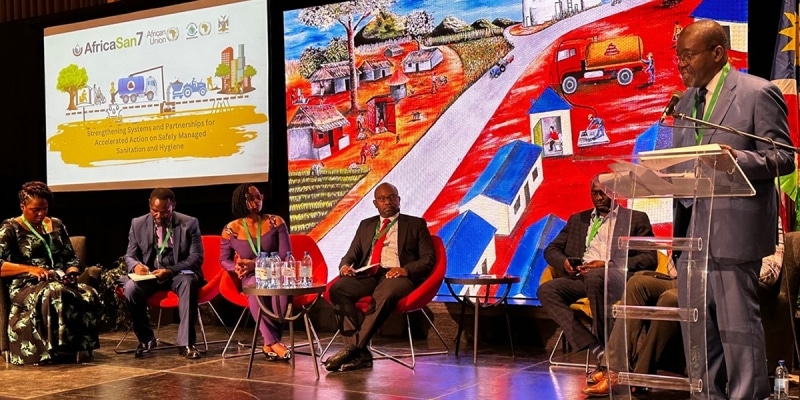This was one of the outcomes of the Seventh African Conference on Sanitation and Hygiene (Africasan7), held in Namibia from 5 to 11 November 2023. Senegal was crowned champion of sanitation in Africa as part of the “Country Achieving Award” presented by the African Ministers’ Council on Water (Amcow). The award recognises the continent’s countries for their implementation of the Ngor Declaration.
In this document, adopted in 2015, 40 African states committed to devoting at least 0.5% of their gross domestic product (GDP) to financing sanitation and hygiene in order to achieve the sixth sustainable development goal (SDG6) by 2030. Senegal has honoured this commitment. In 2022, the budget voted by the Senegalese parliament for this sector was around 129 billion CFA francs (195 million euros), an increase of 5 billion CFA francs compared to 2020.
This represents 4.9% of its GDP (€25.5 billion), which exceeds the Ngor recommendations. Senegal will also have benefited from the sanitation programme in 10 of its cities. This project, piloted by President Macky Sall, is being implemented in Dakar, Kaolack, Louga, Matam, Pikine, Rufisque, Tambacounda, Saint Louis, Tivaouane and Touba. It involves the installation of wastewater collection and treatment systems, including five wastewater treatment plants, five sludge treatment plants, 28 pumping stations, and the development of 335,349 linear metres of sewer network. The sanitation rate in urban areas is 67% in Senegal.
Read also-
While this award recognises its progress, the country of Teranga must not forget its other unresolved sanitation challenges in the territories. An official study recently identified 3,546 cases of illegal occupation in the capital Dakar, particularly near lakes and drainage works. This situation has prompted Senegal’s National Sanitation Company (ONAS) to step up the fight against flooding in urban areas.
Benoit-Ivan Wansi
